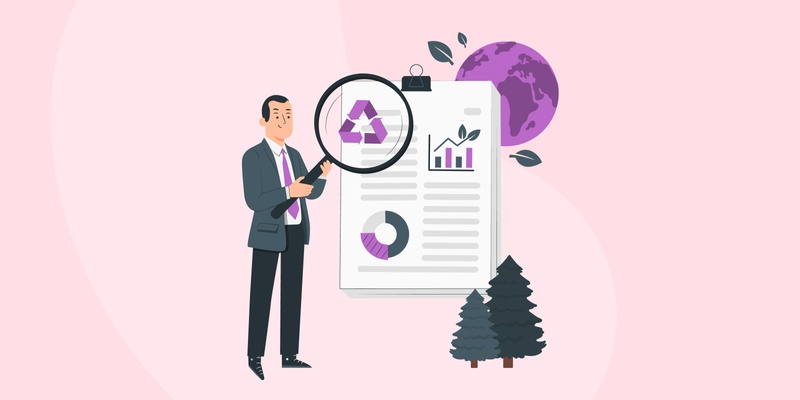
Businesses are looking for greener and more affordable ways to operate.
One such area is business cards. Digital business cards with NFC technology provide many benefits over traditional paper cards, such as for the environment, saving costs, and more features.
This article explores why digital metal business cards are better than paper cards and compares different materials like plastic, recycled plastic, bamboo, and metal.
Key Takeaways
- Sustainability: NFC business cards are eco-friendly, require fewer resources, and reduce plastic pollution.
- Cost-Effectiveness: Digital business cards save money over time by eliminating the need for frequent reprints.
- Durability: Metal business cards are highly durable and resistant to bending, tearing, and water damage.
Why Go Digital?
Support for Green Practices
Using digital business cards can help the environment.
It shows a commitment to eco-friendly solutions that reduce harm to nature and support sustainable practices in networking and communication.
As more people care about Environmental, Social, and Governance (ESG) practices, there are more government initiatives and rules, especially in the European Union, pushing this change.
Less Paper and Ink Use
Digital metal business cards are completely paperless, cutting out the need for physical paper cards.
This helps save trees and reduces the environmental harm linked to paper production.
Approximately 10 billion paper business cards are printed worldwide each year, resulting in the destruction of more than 1 million trees annually. Each mature tree can absorb approximately 48 pounds of CO2 per year, which equals a loss of about 240 million pounds of CO2 absorption capacity annually.
By switching to digital metal cards, businesses can help save these trees and create a more sustainable virtual business card solution.
Less Water Use
Making paper requires large amounts of water for various steps like pulping, washing, bleaching, and forming.
One ton of paper requires 17,000 gallons of water. With 148,812 tons of paper used annually for business cards, this means 2.5 billion gallons of water are consumed each year. To put this in perspective, 2.5 billion gallons of water is equivalent to the annual water usage of approximately 22,000 average American households.
Digital metal business cards cut out these water-heavy processes, conserving billions of gallons of water.
Lower Carbon Footprint
Making, moving, and giving out paper business cards creates greenhouse gasses from fuel use.
Digital solutions also impact the environment because of data centers and servers, but their overall carbon footprint is lower than paper business cards’ entire lifecycle.
The production of paper business cards alone releases approximately 569,191,461 pounds of CO2 annually. This is equivalent to the annual carbon emissions of about 56,000 cars. Digital cards also avoid harmful chemicals like bleaches and dyes, reducing pollution risks to air, water, and soil.
Longevity and Accessibility
Digital business cards can be edited, stored, and accessed on different devices, making them less likely to need replacement, get lost, or be damaged.
This reduces the need for reprints, saving resources compared to paper cards, which can easily be damaged and have a short lifespan. Paper cards are often thrown away after one use, leading to more frequent production and disposal.
Creating a digital business card ensures longevity and easy accessibility, making it one of the best digital business card options available.
Cost Reduction
Switching to digital metal business cards can save a lot of money.
Companies can use the money saved from printing, updating, and giving out physical cards for other resources, projects, or Corporate Social Responsibility (CSR) efforts.
Traditional paper business cards can be costly when considering reprints and updates, while digital alternatives offer significant savings, representing a more cost-effective solution for businesses looking to create a digital business card.
Comparing Different Materials
Plastic Business Cards
Plastic business cards are durable and offer a variety of design options, but they have notable environmental drawbacks.
Pros:
- Durability: Resistant to wear and tear. Design Flexibility: Various colors, finishes, and shapes.
- Cost-Effective: Potential long-term savings compared to frequent paper card reprints.
Cons:
- Environmental Impact: Made from non-biodegradable materials that contribute to plastic pollution.
Recycled Plastic Business Cards
Recycled plastic cards aim to reduce the environmental impact of new plastic production.
Pros:
- Sustainability: Uses recycled materials, reducing the need for new plastic production.
- Durability: Retains the strength and longevity of plastic cards.
Cons:
- Limited Recyclability: Plastic can only be recycled a limited number of times before it degrades.
- Environmental Impact: Still contributes to microplastic pollution.
Bamboo Business Cards
Bamboo is a fast-growing, renewable resource, making it an attractive alternative to traditional paper and plastic.
Pros:
- Sustainability: Bamboo grows quickly and requires fewer resources than trees.
- Aesthetic Appeal: Offers a clean, natural look.
Cons:
- Durability: Less durable than plastic or metal cards.
- Cost: Can be more expensive due to production processes.
Metal Business Cards
Metal business cards are a premium option, known for their durability and distinctive appearance.
Pros:
- Durability: Highly resistant to damage.
- Design Flexibility: Can be etched, engraved, or printed with various designs.
- Prestige: Projects a professional and premium image.
Cons:
- Cost: Higher upfront cost compared to paper and plastic.
- Weight: Heavier and less convenient to carry in bulk.
To Sum It Up
Digital business cards offer significant environmental and cost benefits over traditional paper business cards.
They support sustainable practices by reducing paper usage, water consumption, and energy consumption. Additionally, digital cards provide longevity and accessibility, ensuring they remain effective over time and reducing the need for frequent reprints.
By switching to digital metal business cards, companies can demonstrate their commitment to sustainability and improve their ESG practices. For organizations looking to make a positive environmental impact while maintaining effective networking and communication, digital metal business cards are the clear choice.
As businesses explore how to make business cards more sustainable, digital options emerge as a leading solution, with various digital business card apps available to facilitate the transition.
Updated on 07 Nov 2024.
Related Posts: